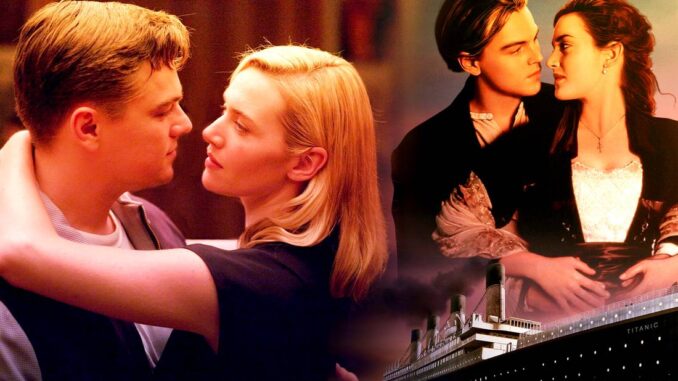
The collective heart of cinema lovers held its breath. Nearly a decade after the unsinkable grandeur of Titanic had launched them into the stratosphere of romantic myth, Leonardo DiCaprio and Kate Winslet were poised to return to the screen together. The anticipation was palpable, a quiet hum of hope for a rekindling of that legendary spark. But the film that brought them back, Sam Mendes' Revolutionary Road (2008), was no sweeping epic, no grand romance. Instead, it was a meticulous, agonizing excavation of a marriage, a suburban nightmare that stood as the stark, devastating antithesis to the youthful idealism of Jack and Rose. Their return was not a nostalgic re-enactment, but a profound artistic statement, illustrating the brutal evolution of both actors and the very nature of screen chemistry.
The ghost of Titanic inevitably haunted the initial marketing and public perception of Revolutionary Road. Audiences, consciously or subconsciously, yearned for a glimpse of that undeniable connection, a reassurance that the magic was still there. We remembered Jack, the free-spirited artist, and Rose, the caged bird longing for release, their love blossoming amidst the impending doom of a grand ship. Their final, tragic embrace on the icy waters became the stuff of legend, sealing their cinematic bond as eternal, pure, and unconquerable. This deep-seated desire for a repeat performance set the stage for Revolutionary Road's most potent subversion.
From the first frame of Revolutionary Road, it was clear this was not Titanic on dry land. The sprawling decks of a luxury liner were replaced by the manicured lawns and pastel perfection of suburban Connecticut in the 1950s. DiCaprio and Winslet, now Frank and April Wheeler, inhabited a world that appeared idyllic but simmered with a quiet, corrosive despair. Frank, once the adventurous drifter, was now a salaryman trapped in a mundane office job, his youthful rebellion dulled by routine and compromise. April, no longer the ethereal debutante dreaming of escape, was a housewife and aspiring actress, her luminous intelligence slowly being snuffed out by the perceived failure of her own life and marriage. Their characters were not star-crossed lovers battling fate, but rather two individuals suffocating in the gilded cage of the American Dream, their relationship a slow-motion car crash of unspoken resentments and unfulfilled dreams.
The brilliance of their reunion lay precisely in this stark departure. DiCaprio shed any lingering vestiges of boyish charm, embodying Frank with a subtle yet potent blend of resignation and self-deception. His smiles were often strained, his eyes carrying the weight of a man who knew he hadn't become who he was meant to be, but lacked the courage to change course. Winslet, on the other hand, was a live wire of frustrated ambition and raw emotion. Her April was fiercely intelligent, desperately yearning for something more, her moments of vulnerability punctuated by bursts of caustic wit and heartbreaking despair. When she spoke of moving to Paris, her voice vibrated with a fragile hope, a final flicker of the idealistic Rose, only to be incrementally crushed by Frank’s practical cowardice.
Their chemistry, far from being absent, had merely matured, deepened, and become excruciatingly real. No longer the passionate, impulsive connection of youth, it was the raw, unvarnished intimacy of a long-married couple who knew each other's every flaw, every fear, and every tender spot to prod. Their scenes together – from explosive arguments that tore through the suburban quiet to moments of fleeting tenderness quickly curdled by resentment – were electric with an unspoken history. They moved in sync, but it was often a dance of mutual destruction, each word and glance designed to inflict maximum pain, born from years of shared disappointment. The famous Titanic scene where Jack teaches Rose to spit off the ship's bow finds its tragic echo in Revolutionary Road's kitchen table arguments, where every verbal jab is a precise, practiced hit.
Ultimately, Revolutionary Road served as a powerful illustration of DiCaprio and Winslet's evolution as actors. It proved they were not merely the vessels for a grand romance, but formidable artists capable of embodying the complex, often ugly truths of adult life. Their willingness to dismantle their most iconic screen pairing, to show us the harsh realities that can follow youthful passion, was a testament to their bravery and commitment to their craft. They didn't return to give us more of Jack and Rose; they returned to show us what might have happened if Jack and Rose had survived, settled down, and found their dreams slowly suffocated by the very ordinary demands of existence. Their reunion in Revolutionary Road was not a comfort, but a challenge – a brilliant, heart-wrenching illustration of how even the most legendary screen chemistry can, in the right hands, expose the profound, beautiful, and devastating complexities of the human condition.